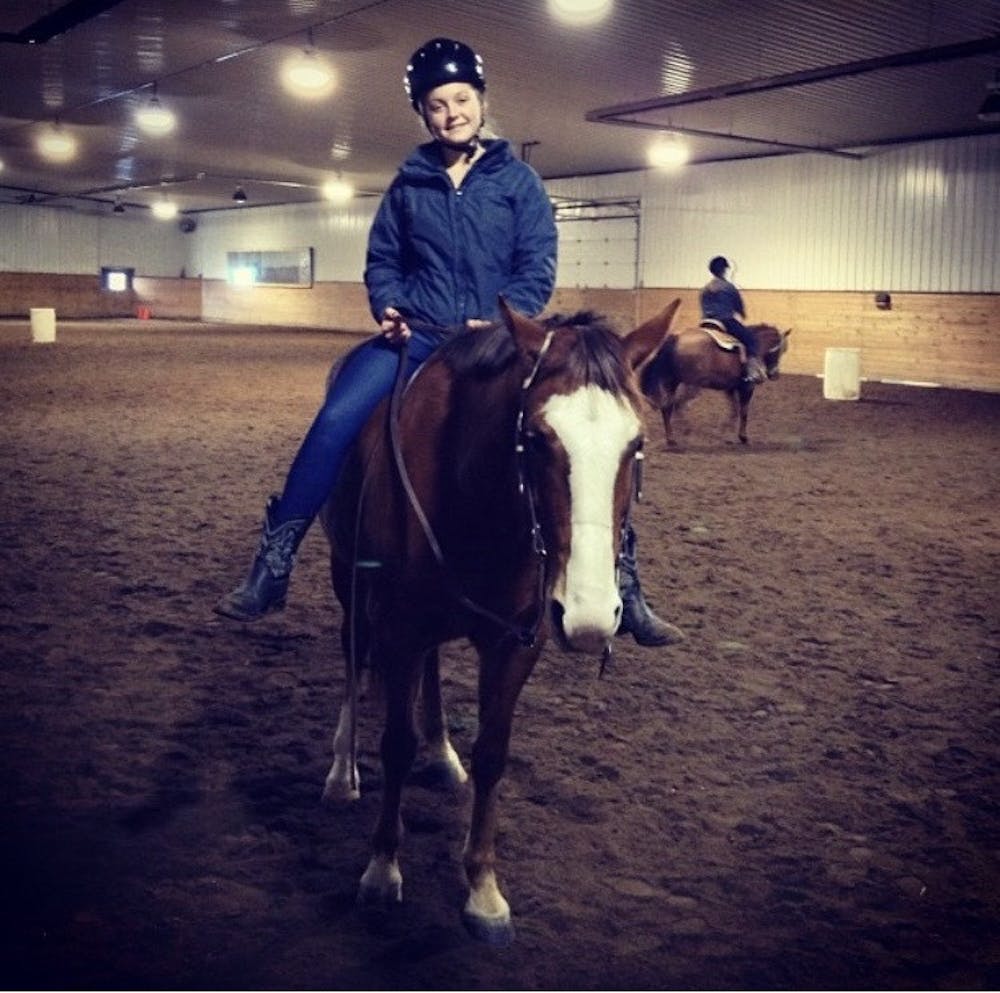I was a horse girl in another life (about 10 years ago).
Every summer day of my youth was spent scooping poop and mucking stalls at my local horse barn. I worked in exchange for free riding lessons but also just the camaraderie of the horse community.
I dreamed about horses, talked about them nonstop and even wrangled my younger brother into riding lessons with me. He had an all-black get-up from boots to helmet. Meanwhile, I chose the very practical color of white boots and white helmet for my first horse attire. They showed their wear, but I loved them and can still vividly picture the stitched leather boots that came up to my knees.
My second go-around with horse attire was of the English style, a more “put-together” outfit consisting of black boots, half chaps and tan breeches with knee patches to help with posting — the motion of bouncing up and down with the horse’s gait. And of course, these were all I wanted to wear to school, but my parents smartly reminded me that kicking poop in the hallway wouldn’t help me make any friends, so I wore normal shoes (most days).
I absolutely fit the stereotype of a horse girl. Whenever we did an art project in school, mine was a horse. Whenever we wrote stories, mine were about horses. My idols were famous horse riders, and I promised my parents I would be going to a college that allowed horses and would someday be a horse trainer (clearly that didn’t happen).
After a few years, my trainer suggested we look into getting a horse of my own, and I was ecstatic. My parents told me if I really wanted to do this, they would have to tap into my college fund; the decision was easy for me at the time.
Riding a horse is freeing, both a dangerous and comfortable pursuit.
Ignorance was bliss — I failed, or maybe refused, to see the danger of submitting myself to the whims of an animal with a mind of her own. I fell off a lot but never got any bad injuries, which likely served as insulation from the risky nature of my favorite activity. I did, however, stop riding English-style after a bad fall in a saddle that was too small to offer much protection from a bucking quarter horse. I’d say that was probably my first experience of anxiety.
It’s not wise to let the mind wander too far when you’re on the back of a 1,000-pound animal. And in that necessary consciousness, I found mindfulness. Horses, like many animals, can sense your emotions, and I learned to manage my anxiety by keeping my horse calm. Speaking softly and often, avoiding sudden dramatic movements, breathing. And I mean really breathing — not just inhale-exhale but deep, refreshing drinks of air that keep you grounded when you are 5 feet above the ground.
I remember one of the moms in my 4-H club saying, “A boy might break your heart, but a horse never will. And that horse will be there for you to cry with when a boy does break your heart.” Though I didn’t date anyone while I had Zippo, she was there for me through painful times. My horse was therapeutic: a friend you could always count on, the best listener, a beautiful escape from harsh realities. She was my home.
I distinctly recall that I started to care what other people thought of me in middle school. And so I joined sports and adopted more “conventional” hobbies. But I still had a horse that I didn’t have the proper time or energy for anymore. Eventually, it came time to sell Zippo. Thankfully, for my sake, a girl — who saved up her own money doing chores — wanted to buy her. We took a loss on the price of the horse, but it made us feel good to know another young woman would be enjoying Zippo. And though I cried when we drove her to the new home, I knew it was the best possible outcome for all three of us: Zippo, her new owner and myself.
I miss you, Zippo Eleta, and hope you’re still running happy in a pasture somewhere in Minnesota.





